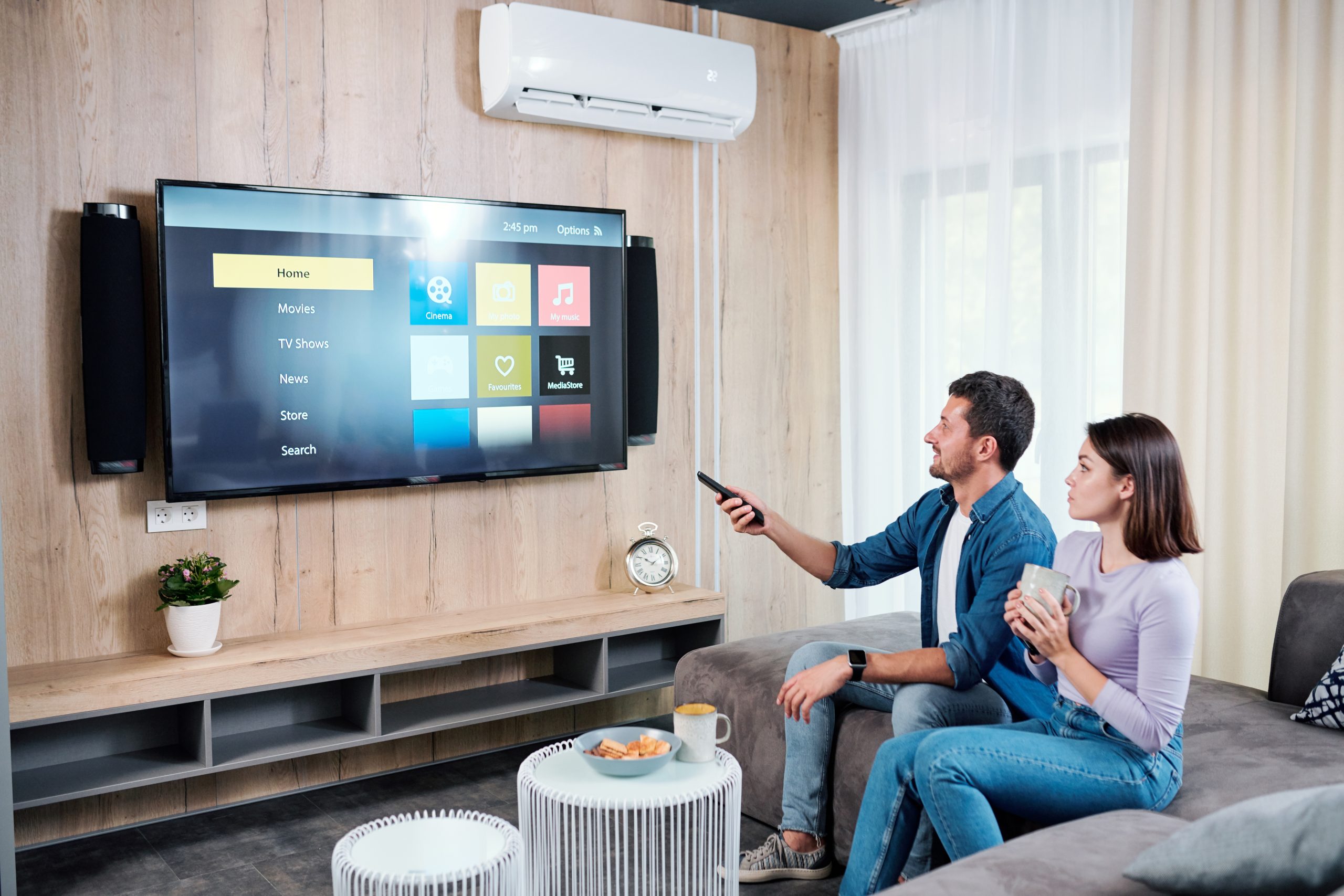HDTV for Free Part 2
By Kenny Jackson | Jan 26, 2013

In my last blog I talked about installing an over the air antenna to get HDTV for free so I could drop my satellite TV provider. The problem with this is only locally broadcast television stations are available over the air, which means I am limited to about 40 channels or so in my area. That is much less than the 200 channels I use to get from my satellite provider. The solution is described in step 2 below.
Step 2: Get connected to Internet TV
There is actually more television content available over the internet than you can get from cable or satellite, and much of it is free. I now have access to ten times the content I had before, and I can watch it on my schedule “on demand”. Most content is not live, but there are more and more live sources becoming available for sports, etc.
Internet TV is not exactly free because it requires you to pay an internet service provider for internet service every month. The thing is, most people already have internet service to their home for surfing the web with their computer, so those people would just be making better use of a product they are already paying for.
Internet TV has been around for a while, and most people have heard about websites like Netflix and Hulu. It wasn’t until recently that there were so many electronic devices available, at affordable prices, that could access the internet and make this content available on your HDTV. You don’t have to figure out a way to connect your computer to your TV (although that is a good option in some cases) and you don’t have to spend $1500 on the latest “smart” TV that directly accesses the internet. Today you can spend as little as $60 for a Roku box and get internet TV. In addition, many blu-ray players, gaming consoles such as Playstation 3, Wii, Xbox 360, and DVRs such as Tivo can access internet TV content to play on your TV. Most of these devices are Wi-Fi compatible, which means you may not even need to run an internet cable to the device.
There is already more TV programming available over the internet than you can get from cable or satellite, with more content becoming available every day. Some of it is free and some has to be paid for. The catch with most internet TV equipment is that you can’t access the internet the same way as you can with a computer, using a web browser, where you just type in a website and go anywhere on the internet. Most devices such as blu-ray players, smart TVs, Internet TV boxes, and some game consoles access the internet using “apps” that send you to a specific website such as Netflix for example. If the “app” for the website you want to visit is not available for the given piece of equipment, you can not go to the website. Basically this means your internet content is limited on these devices. If you are using a laptop or desktop computer, or a high end gaming console such as a Playstation 3 for your internet TV, or any device equipped with Google TV, you will have an actual web browser that you can use to access all free content on the internet from sites such as ABC.com, FOX.com, NBC.com, CBS.com, PBS.com, HGTV.com, TBS.com, nationalgeographic.com, etc., as well as having the ability to pay to access sites such as Netflix, Hulu Plus, etc. Basically just think of a station, type it into the browser and see if it’s there. Most of them are, and most of them have full episodes of your favorite programs that you can watch “on demand” for free. You can also search by the TV show or movie you are looking for. You can even go to Pandora.com for free music over the internet through your home theater surround sound system. Most of the free content will include commercials, but you watch commercials on cable and satellite anyway, and you have to pay for it.
Picture quality varies greatly over the internet, and is dependent on many factors, such as the TV, the equipment you are using to convert the internet signal to the TV signal (examples are your smart TV, computer, a gaming console, or a blu-ray player), your internet service speed, and the quality of the initial content that you are pulling off the internet. If you don’t know the speed of your internet service you can test it for free at www.testmyspeed.com. I have the least expensive basic 2 Mb/s DSL service available at my house . I watch “HD” video content available on Netflix, and very rarely have any problems with the picture going blank or freezing up momentarily. It works very well in my opinion. I think part of the reason is that the conversion equipment I use does a good job of “buffering” the signal. Buffering means that the equipment takes a few seconds to store the program information on its internal memory device before actually playing the video from memory. It “buffers” the video so that if the internet signal slows or is interrupted you have a few seconds of programming stored in memory to watch while the signal is restored. This means you don’t see any interruption in your movie or TV show. I use a Playstation 3 for one of my TVs and a Panasonic Blu-ray player on my other TV and they work great. The Playstation 3 is better because it has an actual web browser, and it does a better job of “buffering” the signal so the movie is not interrupted. For the money, the Panasonic Blu-ray player is still a very good option.
Please feel free to add information you’ve learned about internet TV, post a question, etc. in the comment section below. Also, you can call me at 770-455-4556 or visit our website at www.belcoinc.com if you would like more information on this subject, or if you need an internet outlet, power outlet, surge protector, or wall mount TV installed.
